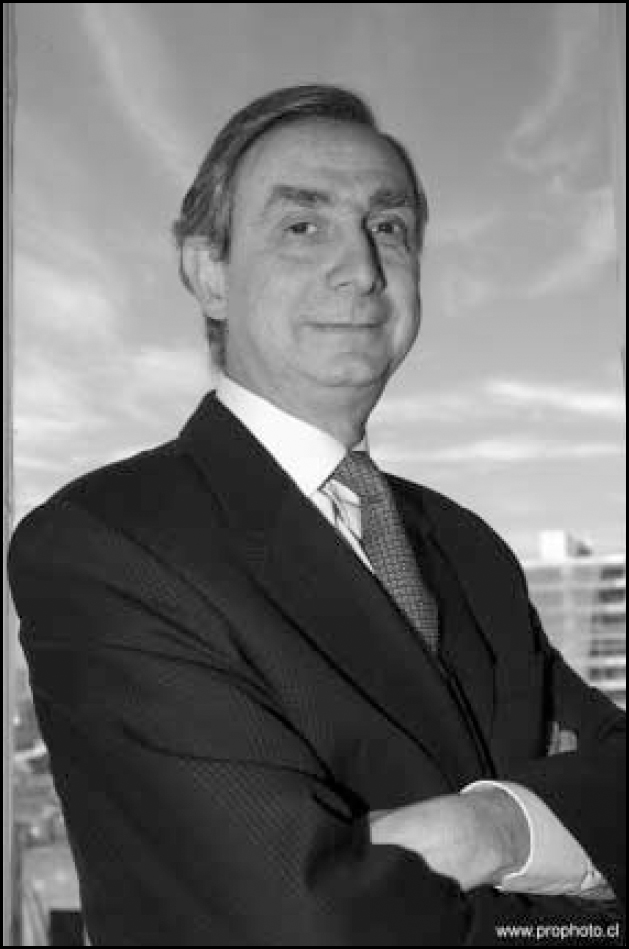Fernando Lolas is Director of the Bioethics Program of the Pan American Health Organization, Regional Division of the World Health Organization, and Professor at the University of Chile. He trained in Santiago, Heidelberg, Sheffield and Chicago. His main interest is in ethics in psychiatric research.
If you were not a psychiatrist, what would you do?
I would have probably devoted my life and studies to literature and literary criticism. Part of that hidden (or repressed) wish is alive through my memberships of the Chilean Academy of Language and the Royal Spanish Academy, institutions devoted to the Spanish language.
What has been the greatest impact of your profession on you personally?
The confrontation with human diversity; the human potential for harm as well as for enjoyment.
Do you feel stigmatized by your profession?
By no means. It has been an asset in my interactions with other medical professionals and researchers.
What are your interests outside of work?
Most of the time, I enjoy reading philosophy and history. Part of my undergraduate studies was in the field of history and collecting books on that subject matter is also a permanent interest.
Who was your most influential trainer, and why?
Aside from my formal teachers, I enjoyed the influence of the Argentinian psychiatrist Guillermo Vidal and my professor in Heidelberg, Paul Christian, who was a disciple of Viktor von Weizsäcker, one of the founders of what in Germany is called ‘anthropological medicine’, which I encountered through my studies on psychosomatic medicine.
What job gave you the most useful training experience?
My time as a member the Psychiatric Clinic of the University of Chile, an institution which I subsequently headed.
Which publication has influenced you most?
If I had to single out one book, it would be ‘El Criticón’ by the Spanish writer of the XVIIth Century, Baltazar Graciàn. It contains deep insights into human nature and is helpful in understanding humankind.

How has the political environment influenced your work?
I have always kept my distance from political contingencies, both in my country and during my studies in Germany, the US and the UK.
What part of your work gives you the most satisfaction?
Encouraging others to join in activities fostering common welfare in mental health in my current position as a staff member of the Pan American Health Organization.
What do you least enjoy?
Being under pressure, unnecessarily.
What is the most promising opportunity facing the profession?
To be part of the common movement towards a more enjoyable life worldwide.
What is the greatest threat?
Not being recognized a source of expert advice.
What single change would substantially improve quality of care?
Realism on the part of professionals and lay people in their expectation of what is achievable and what is not. Also, respecting equity of access to benefits and respect for human dignity.
What is the role of the psychiatrist in countries emerging from conflict?
To help people understand, in times of crisis, what is avoidable and what is not.
What is the most important advice you could offer to a new trainee?
Be open to everything that presents to you, try to be tolerant of diversity.
What are the main ethical problems that psychiatrists will face in the future?
The demands for unachievable goals and the false hopes created by the industrial-medical establishment regarding access and quality of care.
Do you think psychiatry is brainless or mindless?
The most unfortunate situation is one in which these characteristics are turned into ‘schools of thought’.
What is the role of the psychiatrist in rebuilding health care systems?
I see psychiatrists as the systemic organizers of the whole health care system. I fear, however, that this opinion is not shared by other professionals or by politicians.
What single change to mental health legislation would you like to see?
Recognition of the fact that no health is possible without adequate conditions for proper mental health. This is a personal construction, aided by government and industry, but not a gift.
What single area of psychiatric practice is most in need of development?
Social psychiatry has had many forms but is still in an undefined state in my view
What single area of psychiatric research should be given priority?
I believe that many respondents would point toward genomics. But beyond genomics, I see a great need for more research on how to harmonize different discourses in the context of broader social interests.
How would you like to be remembered?
As an honest worker who mistrusted fundamentalism, intellectual or religious.



eLetters
No eLetters have been published for this article.